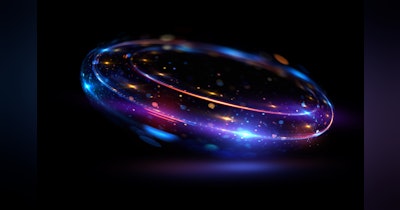Written by: Eva Sylwester
By the end of the current century, there are expected to be 4.9 billion Facebook accounts belonging to dead people.
Psychologist Dr. Elaine Kasket, summarizing the most recent modeling on the subject, said, “The tipping point is somewhere around the middle of the century, where there would be more dead people on Facebook than living, which fundamentally changes the functions and the economics of the site.”
Elaine is the author of All the Ghosts in the Machine: The Digital Afterlife of Your Personal Data. She joined Jacy Nova on the Age of Aquarius podcast to discuss digital immortality and what happens to our social media profiles in the afterlife.
The laws governing such content are currently patchy and vary widely between jurisdictions, Elaine explained. Already, there are problems with the social media accounts of people who have died being targeted for harassment related to their views on COVID-19 vaccines.
Elaine sees the potential for even worse problems in the future if the lack of regulation continues. For example, as deep fake technology improves, she noted the possibility that it could be used to impersonate a recently deceased person in order to access their bank account.
“I'm distressed by the idea that dates of death have a going rate on the dark web and Bitcoin.”
Elaine said Facebook began memorializing the profiles of deceased users after the 2007 mass shooting at Virginia Tech, as survivors found that comforting.
"One of the reasons we try so hard to figure out is because accessing it continues to be psychologically and emotionally important for a lot of people, but then you're essentially asking these social media companies to look after you in your grief or your bereavement; emotionally."
In addition to the environmental impacts of indefinite data storage, Elaine pointed out that a long digital afterlife could also have cultural effects.
"We've been dealing with the great cycle of life and loss, infinitude and bereavement and generations going and making space for the new generations, not just in terms of people, but in terms of ideas, innovation, and not getting sort of stuck in the past."
Elaine recounted her reaction to the news that a hologram of the late opera singer Maria Callas has already given performances: “And I'm thinking, ‘Okay, so now a situation has been created where Maria Callas can continue to stick around and be influential and be touring around. And how does that infringe upon the space of new artists, of new styles, of new voices, of innovation and evolution in the opera world?’”
Though futuristic technology might grab headlines, Elaine observed that some more basic problems of the digital afterlife have not yet been addressed. For example, Facebook allows users to select a legacy contact who will be able to manage their account after they die. However, Elaine pointed out, “There's currently no legacy contact of the legacy contact, so there's no way of handing off that baton that I'm aware of.”
Dr. Elaine Kasket's entire fascinating conversation with Jacy Nova is available for download now via Apple, Spotify, or your favorite streaming platform. To discover more about Elaine's work please visit her website here.
Follow us on Twitter to stay up to date on upcoming episodes. Thanks for listening!






